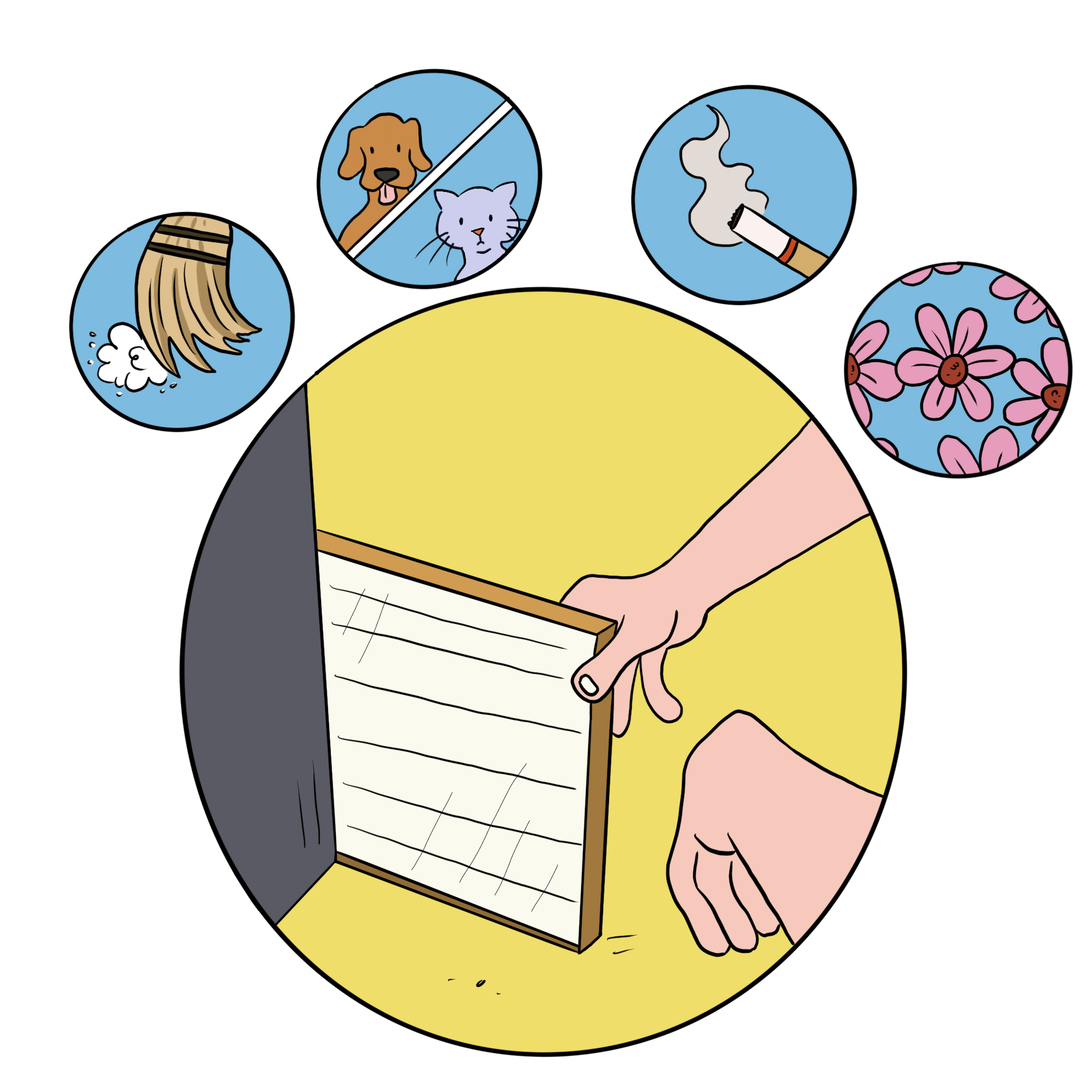When the seasons change, we start to notice things about our homes. Have they always been this dusty? What’s that strange smell? It feels kind of damp. Or even a little too dry. Some of us even start noticing that we’re sneezing and coughing more.
A lot of things could be contributing to the changes in your home, but one of the common culprits for poor airflow and increased allergies is the home air filters. So how often should we change them, and what should we look for when we’re replacing them?
Have a heating, cooling, or plumbing problem, but no time to wait for a repairman? Need a second opinion on an existing quote?
We’ll give you free advice about your question or problem. In many cases, you’ll get an estimate or the help you need during the video call.
 How often should you replace your air filters?
How often should you replace your air filters?
How often you should replace your air filter isn’t always clear. It depends on the size of the house, the type of filter, how often the system runs, whether you have pets, and many other factors. A good rule of thumb is to read the packaging of your air filter. Many recommend replacing air filters every 30-60 days. The more pets you have, the more frequently you should replace the filter. If there are no pets, then you can change the filter less frequently. If you have allergies or young children in the home, then you will need to change the filter around the lower end of the 30-60 day period in order to maintain the quality of the air.
PRO TIP: You can check your air filters effectiveness once a week by quickly holding them up to a light. If the light doesn’t shine through the filter, it’s definitely time to replace them.
What type of air filter should you look for?
CNET says looking at the Minimum Efficiency Reporting Value (MERV) rating is key. Every filter has a MERV number, and the higher the MERV number, the better quality the filter is, meaning it can hold contaminates better and last longer.
The only downside to picking a filter with a high MERV rating is that it can slow down the airflow in your AC unit. The best choice is a balance between good quality and good airflow, which is typically a filter that has a MERV rating of 6 to 8. If you have a high-efficiency AC, you may get away with a higher rating. 1
PRO TIP: Size matters. Depending on the model of the furnace and the desired air quality, you need to make sure that the filter is the right size and that it’s made out of the proper material.
What are the benefits of replacing your air filters?
In addition to reducing allergies for you and your family, there are also financial and environmental benefits to replacing your air filters on time. The U.S. Department of Energy says that replacing a dirty filter with a clean one can lower your air conditioner’s energy consumption by 5 to 15 percent.
Not only will it save you money on your energy bills, but it also can save you money on your heating and cooling system. A dirty filter will restrict your air flow, causing your system to work harder. This will cause wear and can create issues that possibly require repairs. Ultimately, the routine replacement of your air filters can extend the lifespan of your system.
In order to ensure that your new air filter will fit and function properly with your furnace, you should contact the dealer of the furnace. If you're wondering how to replace your home air filter, you can also call Commercial Service at 812-339-9114. Our technicians can help you install air filters and make sure you have what you need for all of your home cold-weather needs.



